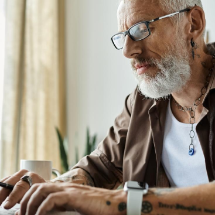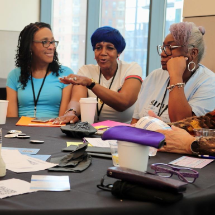Aging with HIV/AIDS
By the end of the decade, 70% of people living with HIV/AIDS will be older than 50. To bring attention to the impact of HIV/AIDS on the older adult population, ASA and Gilead have launched an initiative to help professionals in aging to better support and engage with this demographic.
Making the Aging Network HIV-Inclusive: A Practical Guide for Aging Services
This toolkit reframes HIV as a defining issue in aging, offering actionable guidance to help aging services create welcoming, safe, and affirming spaces for people aging with HIV. It includes practical steps to reduce stigma, build trust, and center lived experience. This guide covers everything from staff training to care coordination and community partnerships.
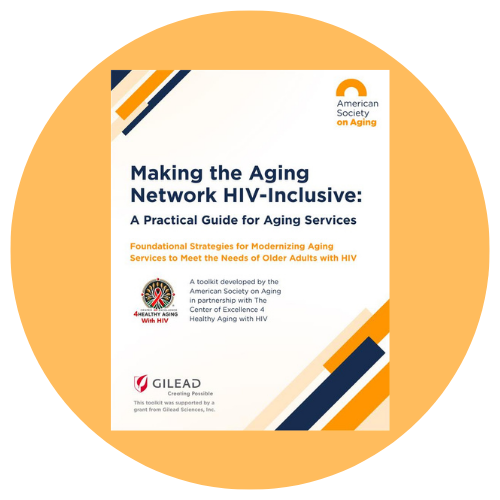
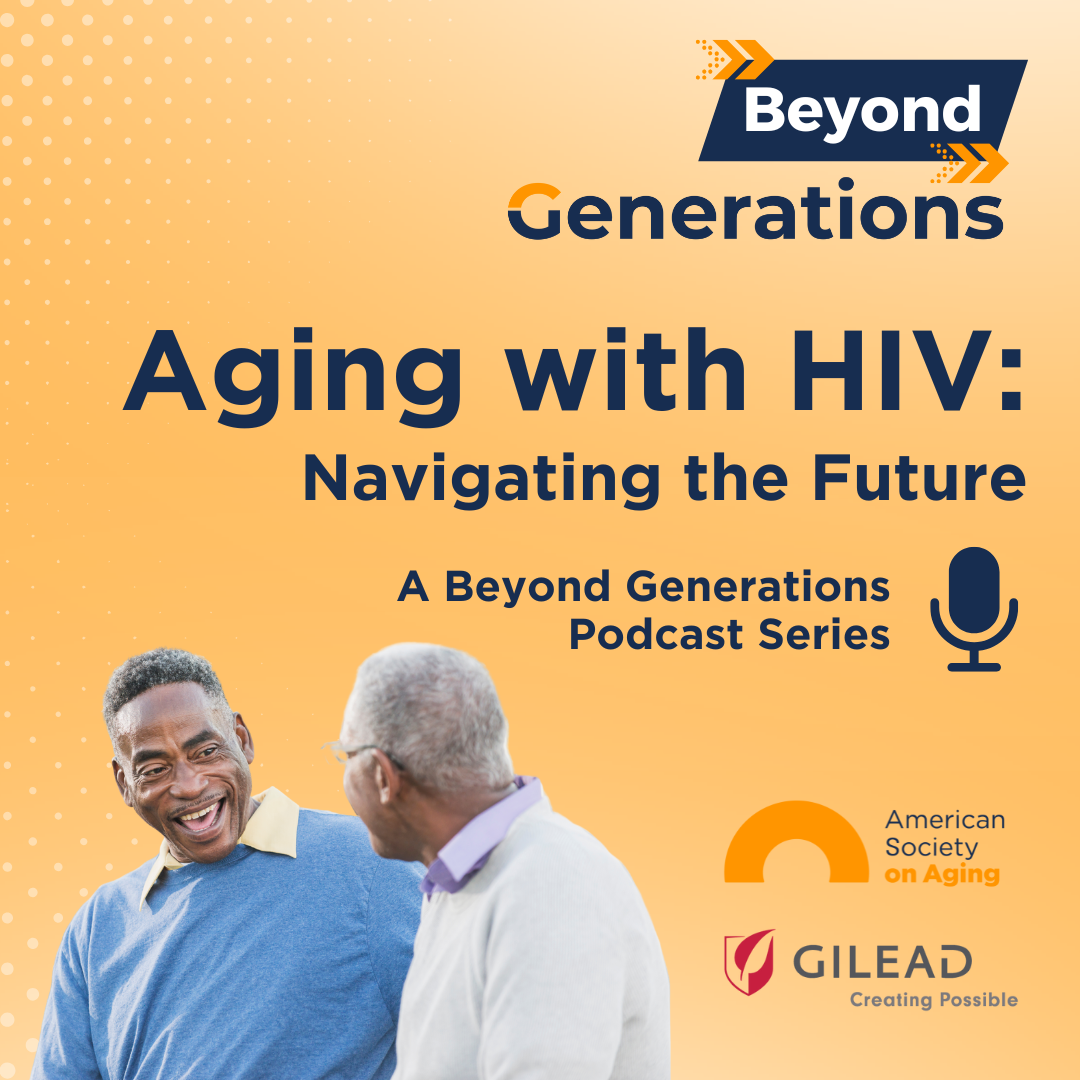
Podcast Series
Aging with HIV: Navigating the Future
Aging with HIV: Navigating the Future is a Beyond Generations podcast series produced by the American Society on Aging in collaboration with Gilead Sciences that explores the unique experiences and challenges faced by individuals aging with HIV. The series features in-depth conversations with experts and advocates across the country, examining how we can break down lasting barriers to care, and improve well-being and equity for the growing population of older adults living with HIV. Each episode highlights real-world strategies—from educating healthcare professionals to equipping social workers with critical resources—to strengthen systems of support, celebrate lived experiences and close lasting gaps in the continuum of care to ensure that individuals aging with HIV can thrive in their later years.
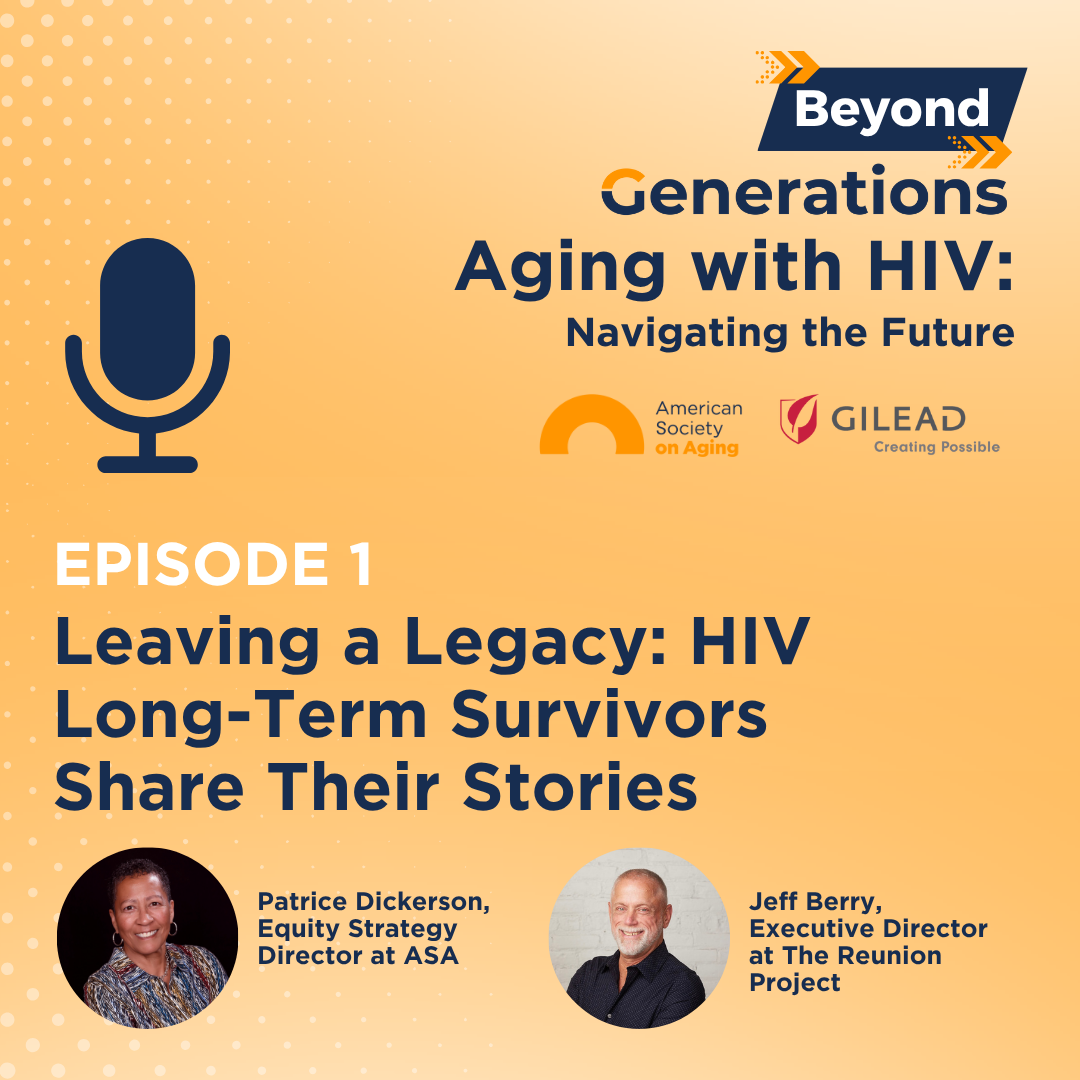
Episode 1
Leaving a Legacy: HIV Long-Term Survivors Share Their Stories
This podcast episode illuminates how The Reunion Project empowers long-term HIV survivors to shape/share their own narrative, emphasizing their resilience, wisdom and ongoing fight for dignity. The Reunion Project provides a vital community and platform for long-term survivors to amplify their stories and ensure they can help shape the future of HIV care and policy, especially amidst current threats to hard-won progress. Jeff Berry, Executive Director at The Reunion Project, joins ASA’s Equity Strategy Director, Patrice Dickerson, for a conversation on how the stories of long-term HIV survivors serve as a source of inspiration for those grappling with what it means to age with HIV.
Read the Generations Today article on Leaving a Legacy: HIV Long-Term Survivors Share Their Stories.
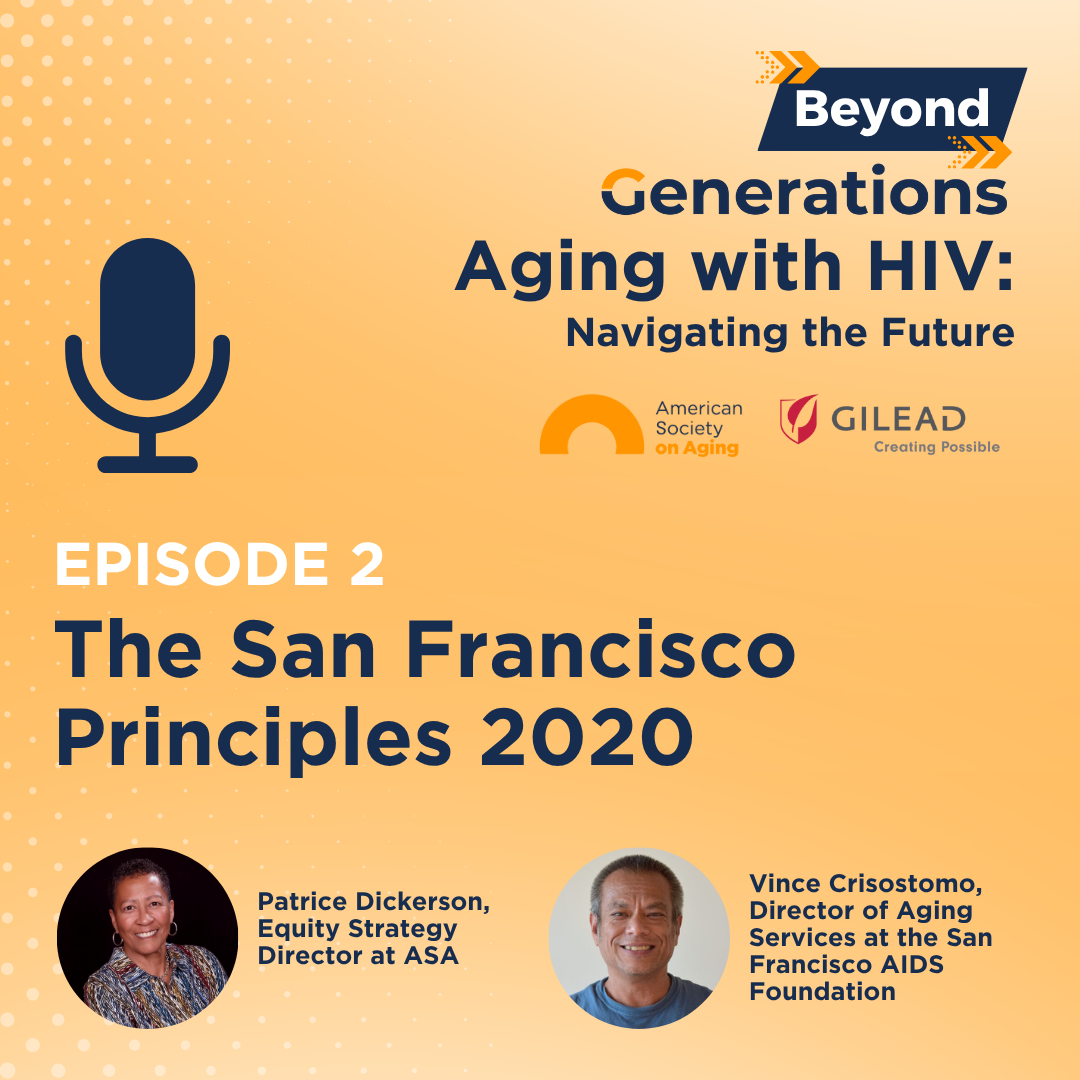
Episode 2
The San Francisco Principles 2020
This podcast episode explores how the San Francisco AIDS Foundation is helping break down barriers to care for individuals aging with HIV and how The San Francisco Principles highlight the urgent need to address health inequities and systemic neglect faced by long-term survivors. Vince Crisostomo, Director of Aging Services at the San Francisco AIDS Foundation, sits down with ASA’s Equity Strategy Director, Patrice Dickerson, to discuss how The San Francisco Principles 2020 embody the collective voice of long-term HIV survivors, advocating for awareness, equity and lasting support.
Read the Generations Today article on The Relevance of the Denver Principles for Elders Living with HIV in the United States.
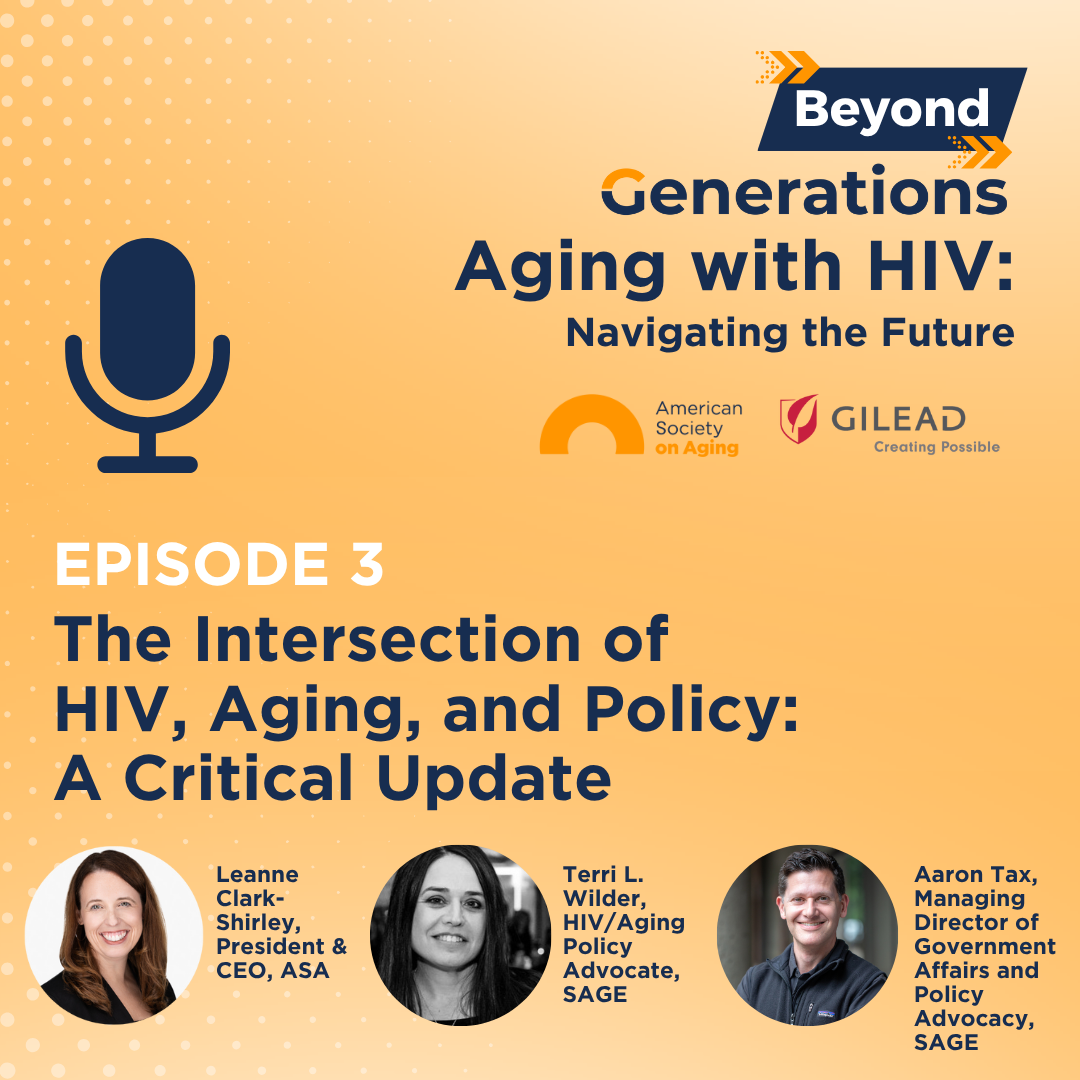
Episode 3
The Intersection of HIV, Aging, and Policy: A Critical Update
This podcast episode focuses on federal and state policies impacting older people living with, and vulnerable to, HIV. Terri Wilder and Aaron Tax from SAGE—the country’s largest and oldest organization dedicated to improving the lives of LGBTQ+ older people—join ASA’s President and CEO Leanne Clark-Shirley to discuss recent and upcoming legislative changes and the implications for healthcare access, long-term–care protections, and other quality–of–life issues for individuals aging with HIV. The episode highlights SAGE’s work advocating for public policy changes that address the needs of LGBTQ+ older people and providing education and technical assistance for aging services providers and LGBTQ+ organizations.
Read related Generations Today articles We Cannot Afford to Lose Ground in the Fight Against HIV/AIDS & Navigating HIV Challenges in Aging: A Call for Inclusive Policies.
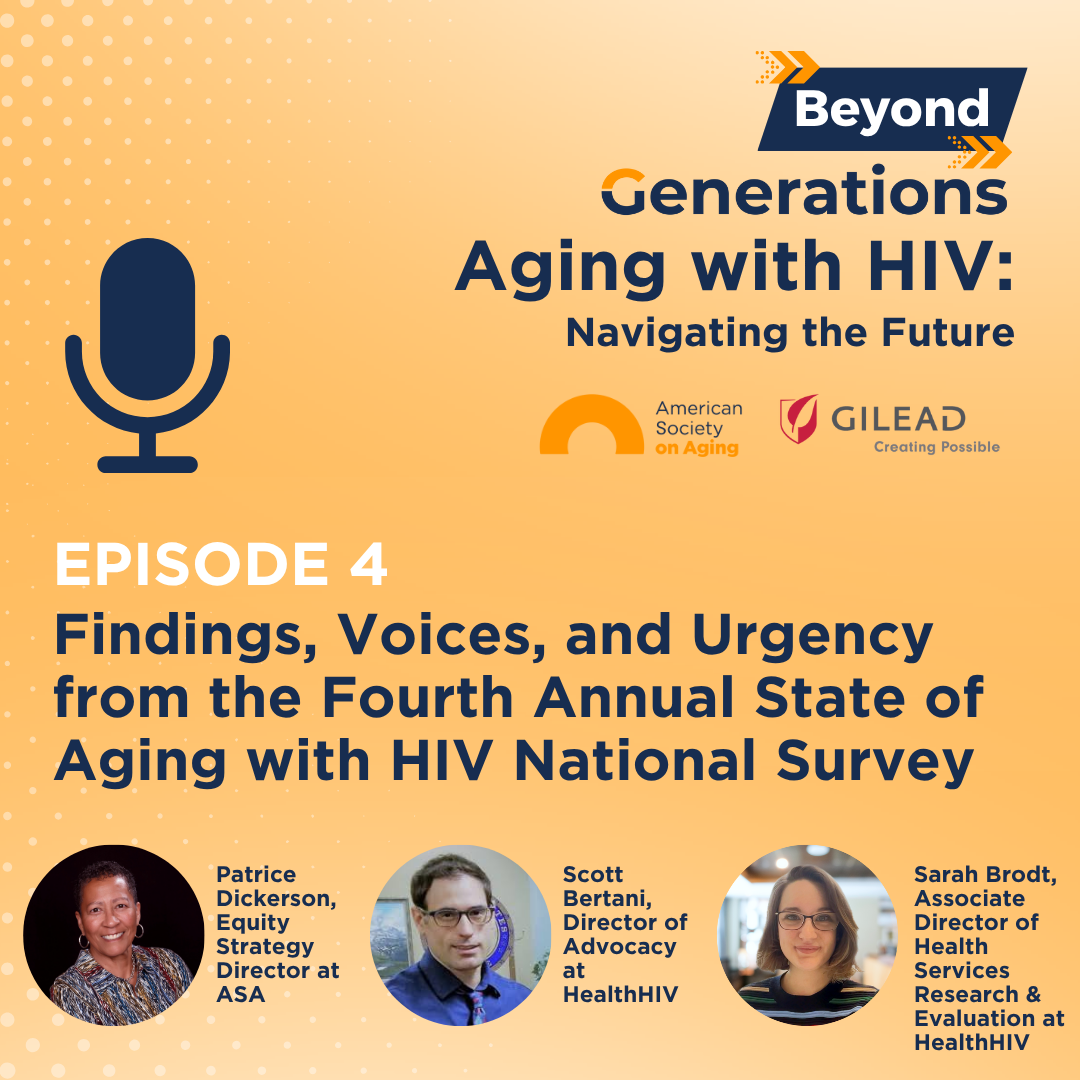
Episode 4
Findings, Voices, and Urgency from the Fourth Annual State of Aging with HIV National Survey
This podcast episode focuses on the mission of HealthHIV and insights from the organization’s Fourth Annual State of Aging with HIV National Survey. For the first time, this survey has two population focuses—one that reached those aging with HIV and one that reached the workforce providing health and human services to this population. Scott Bertani and Sarah Brodt from Health HIV join ASA’s Equity Strategy Director Patrice Dickerson to discuss survey findings and implications for care, policy and advocacy for people aging with HIV across the country.
Read related Generations Today article on Challenges and Strategies in HIV Care for Older Adults.

Episode 5
Aging, Identity and Survival: Reclaiming Space for Older Latino Adults in the HIV/AIDS Epidemic
This podcast episode focuses on the unique challenges faced by Latino individuals aging with HIV, including barriers to accessing culturally competent care due to language, economic insecurity, stigma and geographic disparities. Luis Nava Molero, Director of the National Programs at Salud es Vida (Health is Life) at the Latino Commission on AIDS, sits downs with Victoria Ruiz, ASA’s Senior On Aging Institute Manager, to discuss how the Latino Commission on AIDS is spearheading health advocacy for Latinos—including those aging with HIV— and building capacity in community organizations.
Read related Generations Today article on On Aging, Identity and Survival and Still in the Shadows: The Health Crisis of Hispanic/Latinx Communities Aging with HIV/AIDS.
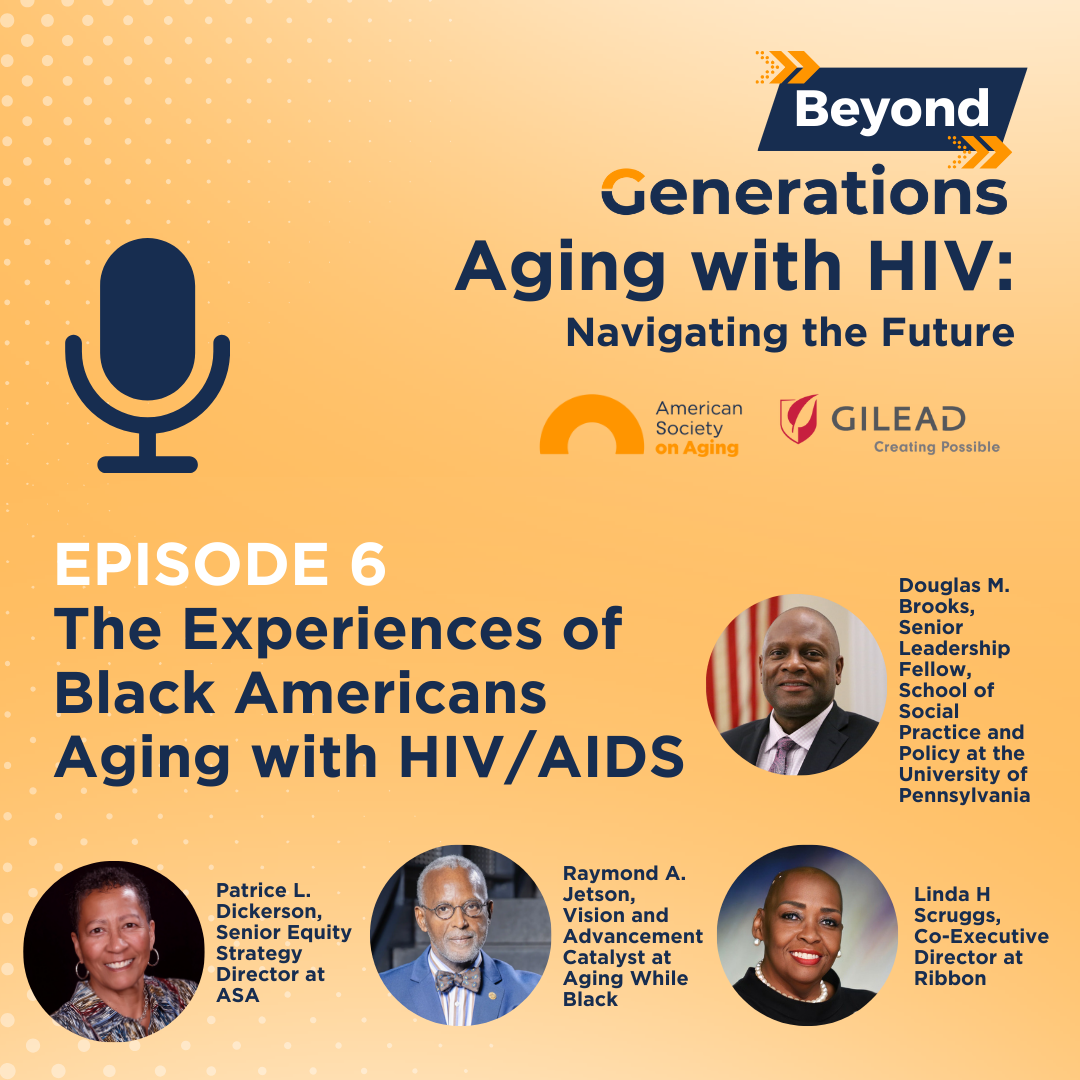
Episode 6
The Experiences of Black Americans Aging with HIV/AIDS
This final episode in the Aging with HIV: Navigating the Future podcast series focuses on the distinct challenges faced by Black Americans aging with HIV, and the structural barriers disproportionately impacting their ability to access quality care and treatment. Joining ASA’s Equity Strategy Director Patrice Dickerson to discuss aging at the intersection of Blackness and HIV and how this intersectionality of identities involves navigating a complex landscape of health disparities, social inequities, and unique psychosocial challenges, are Douglas M. Brooks, Raymond A. Jetson and Linda H Scruggs. They also will touch on why their work as advocates is so crucial in bridging existing gaps and how cross-sector collaboration is so critical in advancing health equity for the Black community, especially for Black older adults living with HIV.
Read related Generations Today articles Distinguished Black Men and Their Long Road of Survivorship and Caring for the Caregivers.
Generations Articles
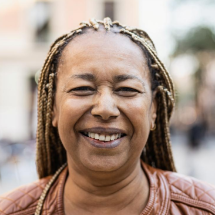
By Linda H Scruggs, Vanessa Johnson, Shauna Cooper and Denise Drayton
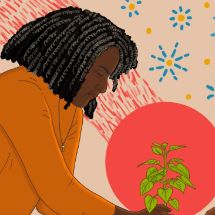
Healing Hope: The Power of Storytelling for Women Aging with HIV
By Rhea Van Brocklin
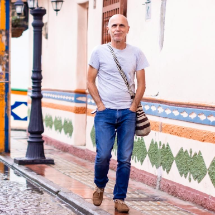
On Aging, Identity and Survival
By Luis Nava
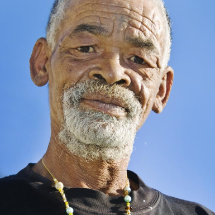
The Impact of Aging with a Criminal Record
By Kae Greenberg
Podcast Series
Aging with HIV: Understanding the Journey
Gilead Sciences and the American Society on Aging produced their first podcast series of conversations about caring for older adults living with HIV in 2024. Check out the episodes below! This series covers the opportunities to improve care for those who are aging with HIV—from educating healthcare professionals to ensuring social workers have the resources they need—and examines the experiences of overlooked HIV communities.
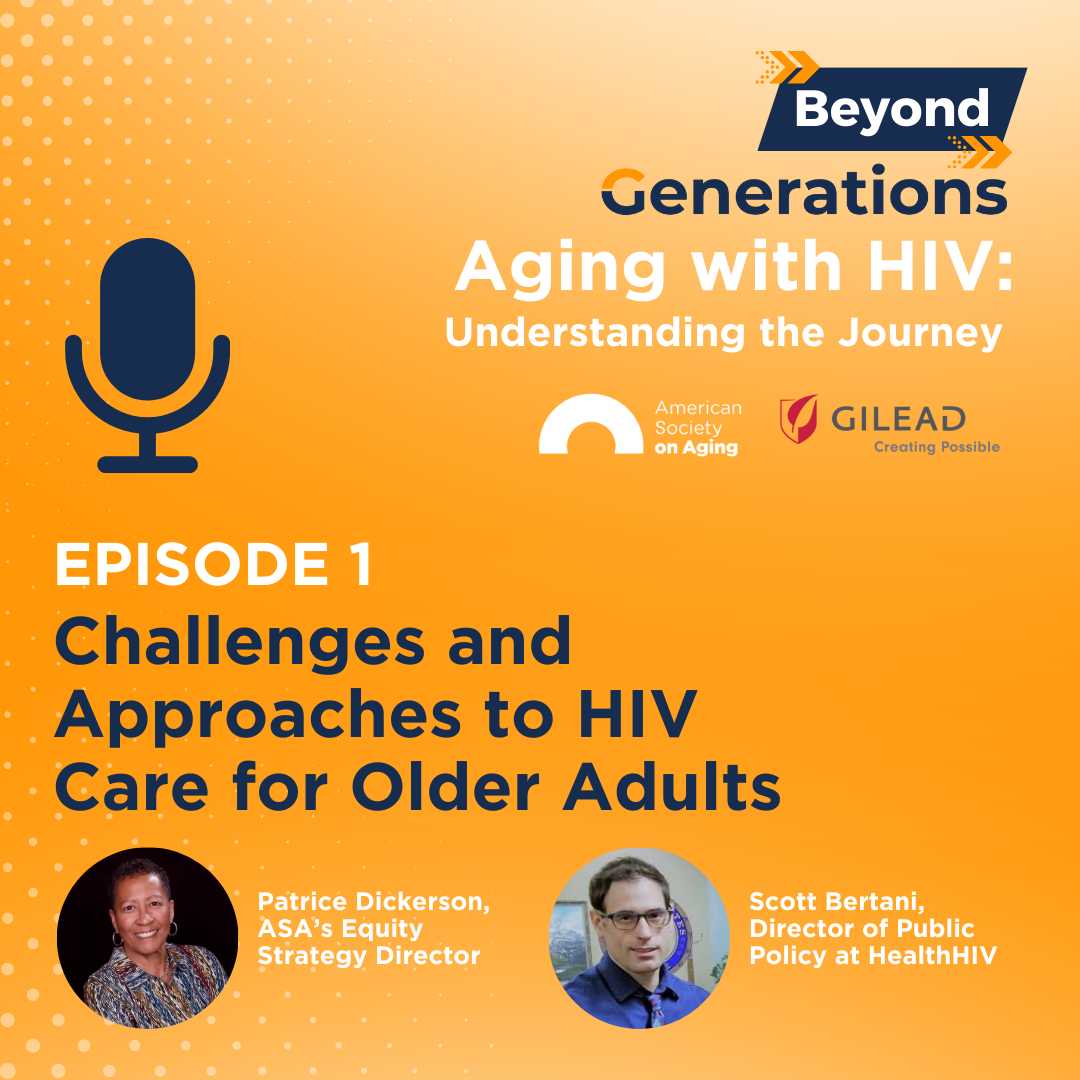
Episode 1
Challenges and Approaches to HIV Care for Older Adults
Caring for older adults—specifically those older than age 50—who are living with HIV calls for increasing access to services and care coordination. HealthHIV’s Pozitively Aging program works to improve the quality of life for those aging with HIV. Scott Bertani, Director of Public Policy at HealthHIV, sits down with Beyond Generations to discuss his article in the Gilead-sponsored Generations Today on how Pozitively Aging addresses obstacles and solutions to HIV care.
Read the Generations Today article on Challenges and Strategies in HIV Care for Older Adults.
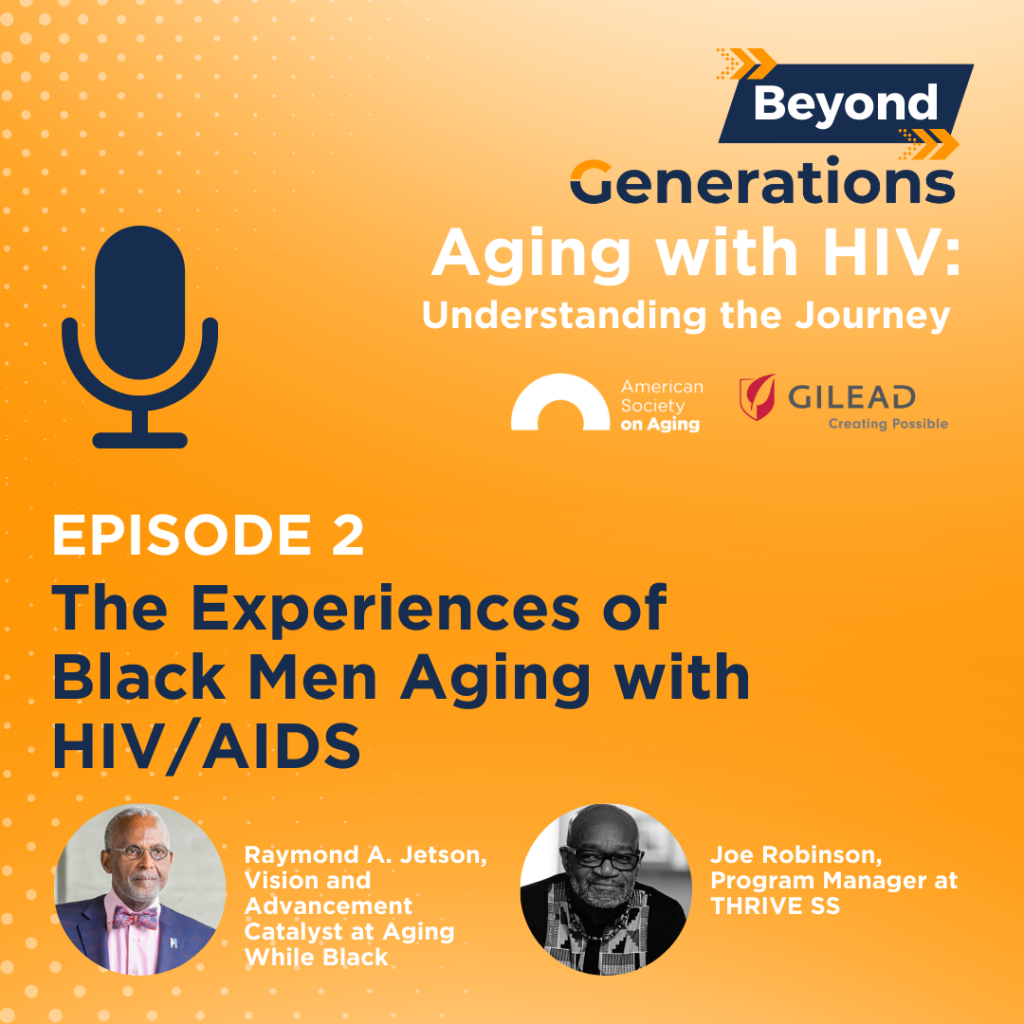
Episode 2
The Experiences of Black Men Aging with HIV/AIDS
People living with HIV have historically faced social isolation and stigma from society, however, Black men in particular have faced unique challenges while aging with HIV. Joe Robinson from THRIVE SS sits down with special guest host Raymond A. Jetson from Aging While Black to discuss his role as lead program manager of The Silver Lining Project, a program that aims to create a safe space where older Black men living with HIV can share, discuss and advocate for issues impacting their community.
Read the Generations Today article on Distinguished Black Men and Their Long Road of Survivorship.
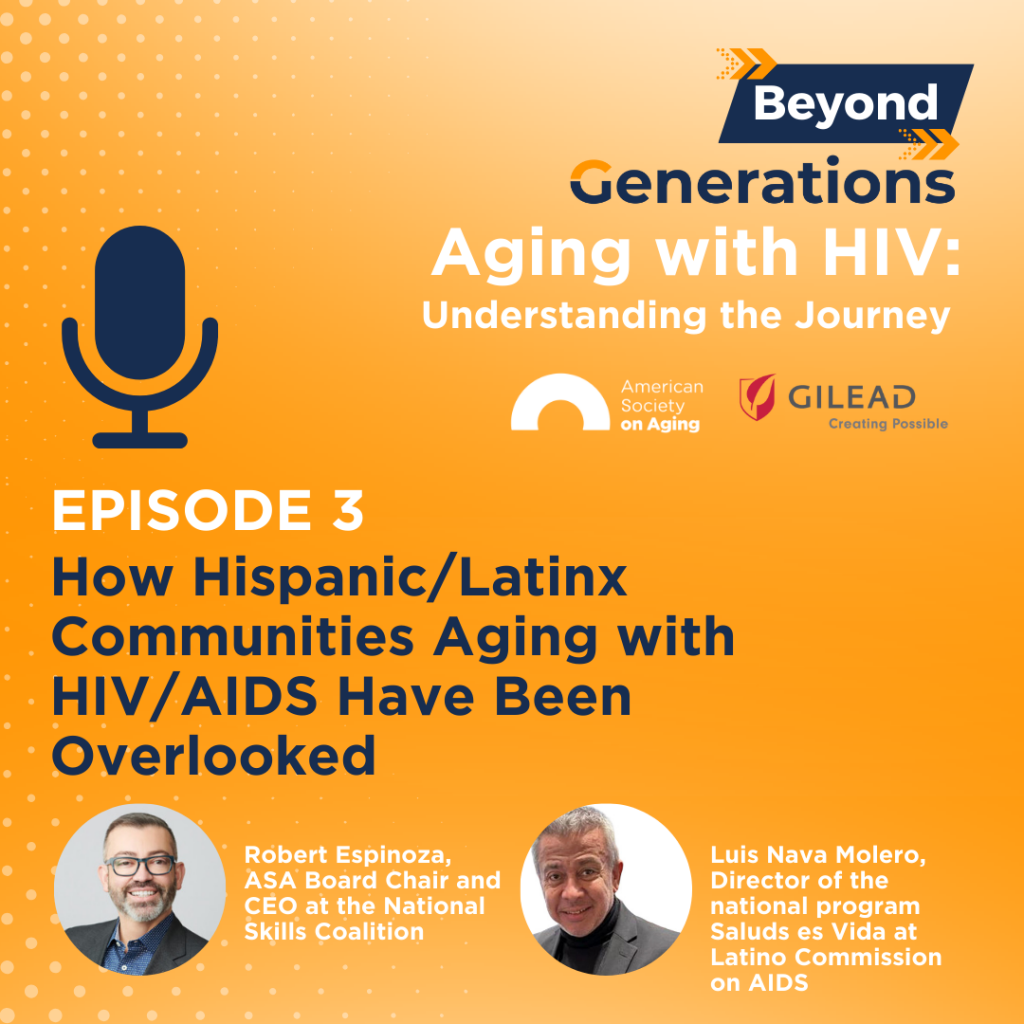
Episode 3
How Hispanic/Latinx Communities Aging with HIV/AIDS Have Been Overlooked
More than one in every five older adults living with HIV is Hispanic/Latinx. This population living with HIV is a rapidly expanding demographic, and yet they face unique hurdles in accessing healthcare and treatment. Often they have been related to language barriers, but such hurdles also are compounded by feelings of depression and social isolation. Luis Nava Molero from the Latino Commission on AIDS sits down with National Skills Coalition CEO Robert Espinoza to discuss the vulnerabilities of Hispanic/Latinx communities aging with HIV and how they have been overlooked time and again.
Read the Generations Today article, Still in the Shadows: The Health Crisis of Hispanic/Latinx Communities Aging with HIV/AIDS.
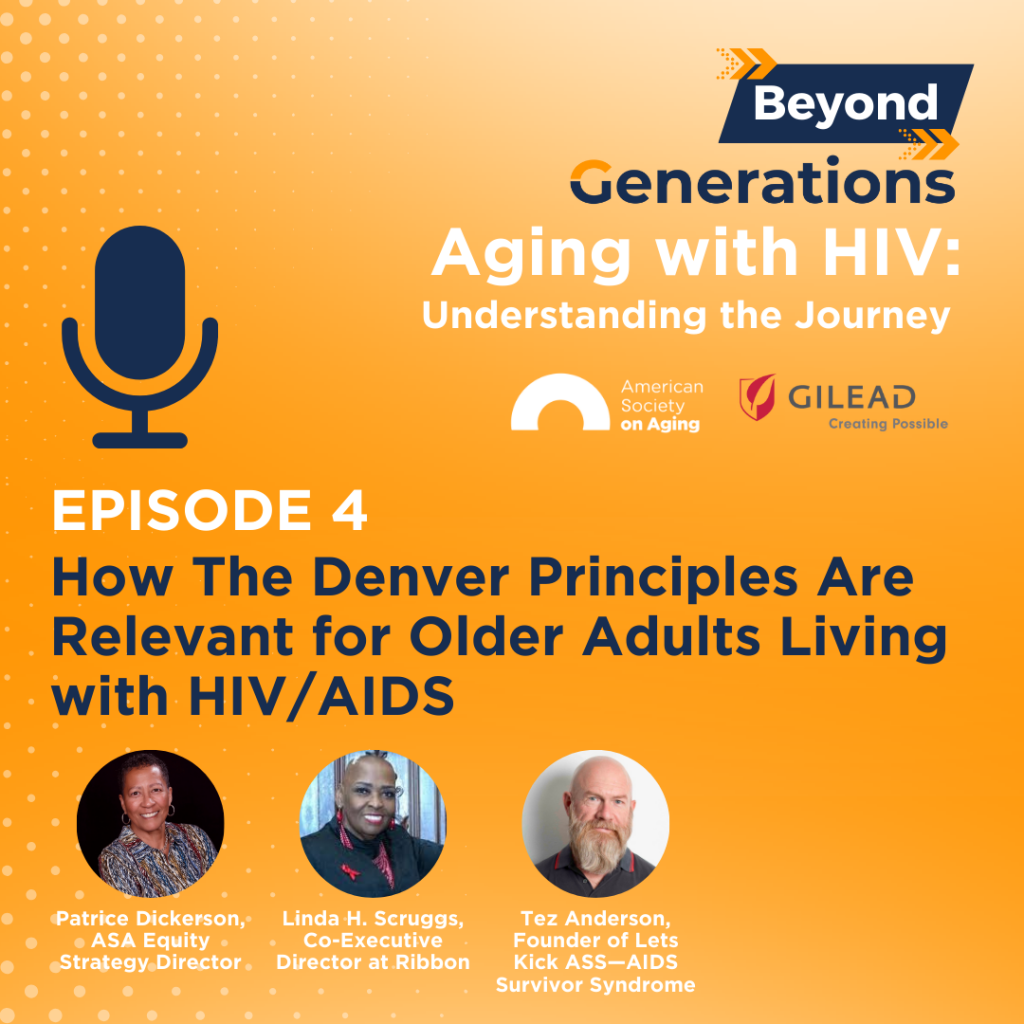
Episode 4
How The Denver Principles Are Relevant for Older Adults Living with HIV/AIDS
In 1983, activists developed a manifesto referred to as The Denver Principles, which asserts the rights and responsibilities of people living with HIV, including the right to make meaningful decisions, and declares that they are not passive subjects, but protagonists who are fully involved in their response to AIDS. In this episode, Linda H. Scruggs from Ribbon, a nonprofit organization, and Tez Anderson, President of Let’s Kick Ass—AIDS Survivor Syndrome, sit down with ASA Equity Strategy Director Patrice Dickerson to discuss why The Denver Principles continue to be relevant today, particularly for people aging with HIV.
Read the Generations Today article, The Relevance of The Denver Principles for Elders Living with HIV in the United States.
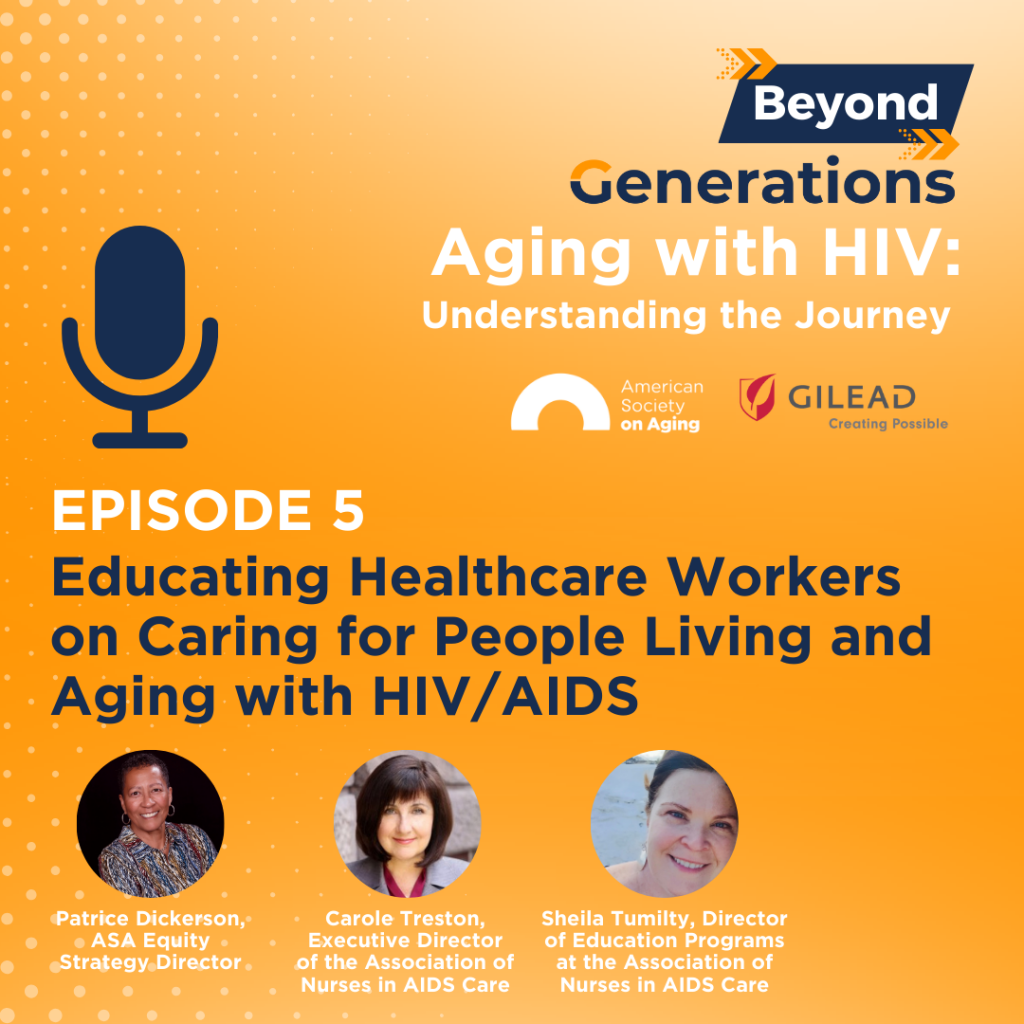
Episode 5
Educating Healthcare Workers on Caring for People Living and Aging with HIV/AIDS
Many adults who are aging with HIV have experienced immense loss, stigma and discrimination—even within the healthcare system. Unfortunately, the care and treatment they receive often comes from specialists who are unfamiliar with HIV and the unique challenges it poses to older adults. Carole Treston and Sheila Tumilty from the Association of Nurses in AIDS Care address the importance of educating and equipping healthcare workers with the right information and resources to care for people living and aging with HIV.
Read the Generations Today article, Educating the Healthcare Workforce to Improve Quality of Care for People Aging with HIV.
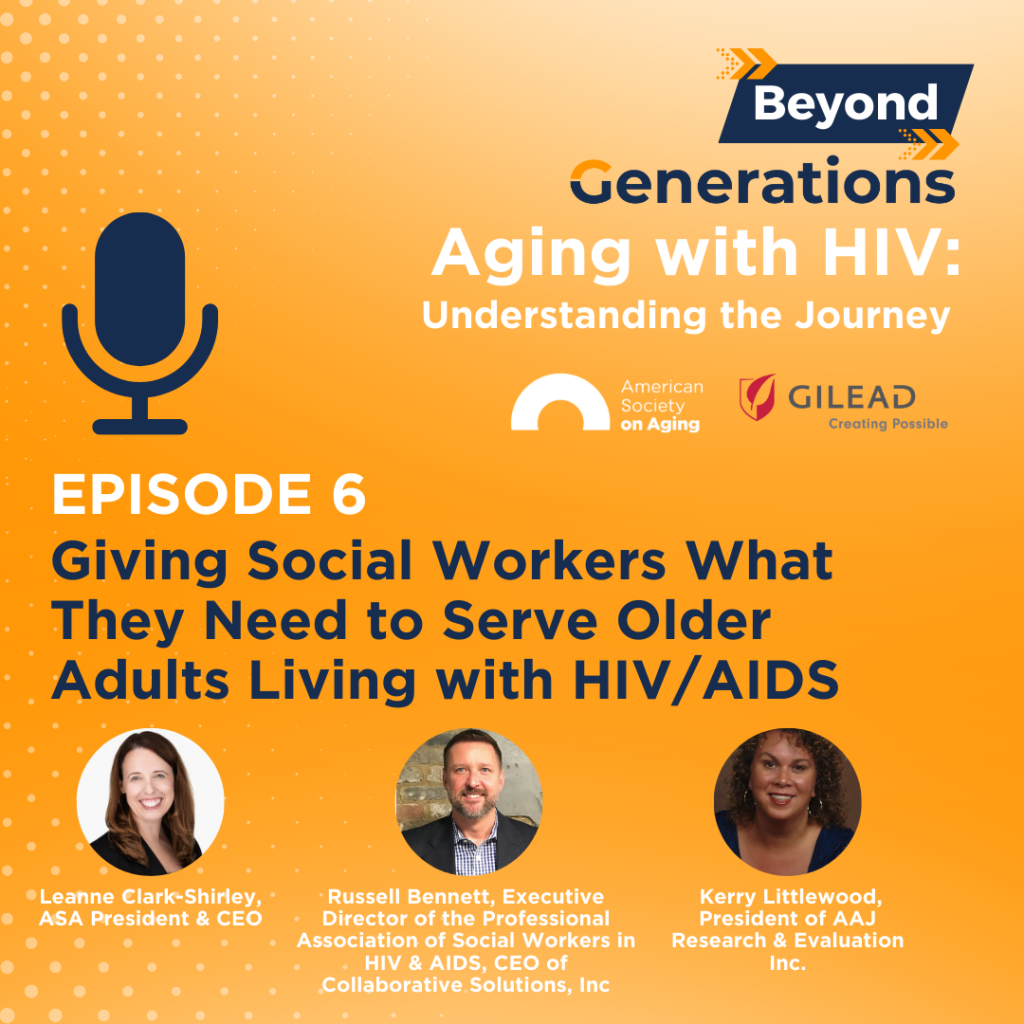
Episode 6
Giving Social Workers What They Need to Serve Older Adults Living with HIV/AIDS
Social workers are in a unique position because they interact with the broader social determinants of health—such as mental health, housing, employment, etc.—and see firsthand how they impact people living and aging with HIV. Kerry Littlewood from AAJ Research & Evaluation, Inc., and Russell “Rusty” Bennett from the Center for Social Innovation and Health Equity Research, and Collaborative Solutions, Inc., sit down with ASA President & CEO Leanne Clark-Shirley for this episode to discuss what support social workers need to serve older adults living with HIV.
Read the Generations Today article, What Do Social Workers Need to Serve Older People Living with HIV/AIDS?
Panel Discussion from On Aging 2024
This recording is from a Keynote session with Gilead Sciences at On Aging 2024.
Generations Articles

Challenges and Strategies in HIV Care for Older Adults
By Scott D. Bertani
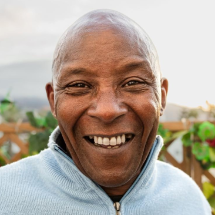
Distinguished Black Men and Their Long Road of Survivorship
By Joe Robinson and Darryl (D.C.) Branch

Educating the Healthcare Workforce to Improve Quality of Care for people Aging with HIV
By Carole Treston, Jeffrey Kwong, Sheila Tumilty and David E. Vance
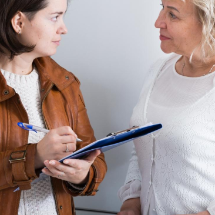
What Do Social Workers Need to Serve Older People Living with HIV/AIDS?
By Russell L. Bennett, K. Littlewood and C. Spadola
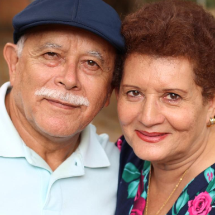
The Relevance of The Denver Principles for Elders Living with HIV in the United States
By Vanessa Johnson, Joie Otting, John Guidry, Shauna Cooper and Linda H. Scruggs
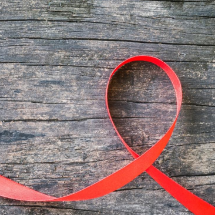
Navigating HIV Challenges in Aging: A Call for Inclusive Policies
By Terri L. Wilder, MJ Okma and Emma Bessire
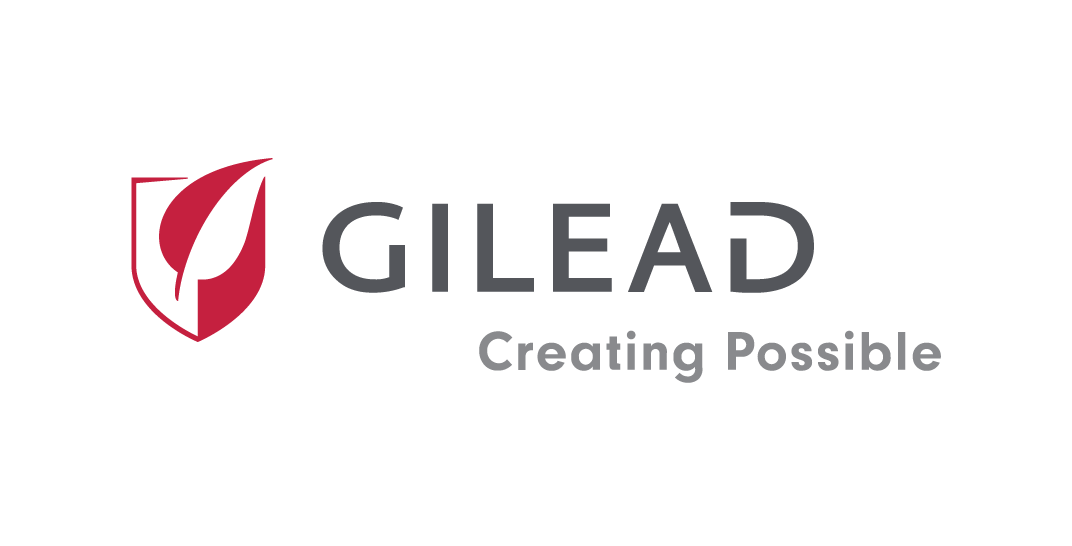
Thank you to Gilead Sciences for sponsoring this important work!
Gilead Sciences’ HIV Age Positively aims to support programs focused on improving the quality of life and health for those who are aging. HIV Age Positively has awarded more than $17.6 million in grants to support 30 organizations—from healthcare organizations to advocacy groups working to address the interrelated challenges within the healthcare system and the general HIV community— addressing stigma, loneliness and better coordination of care.
